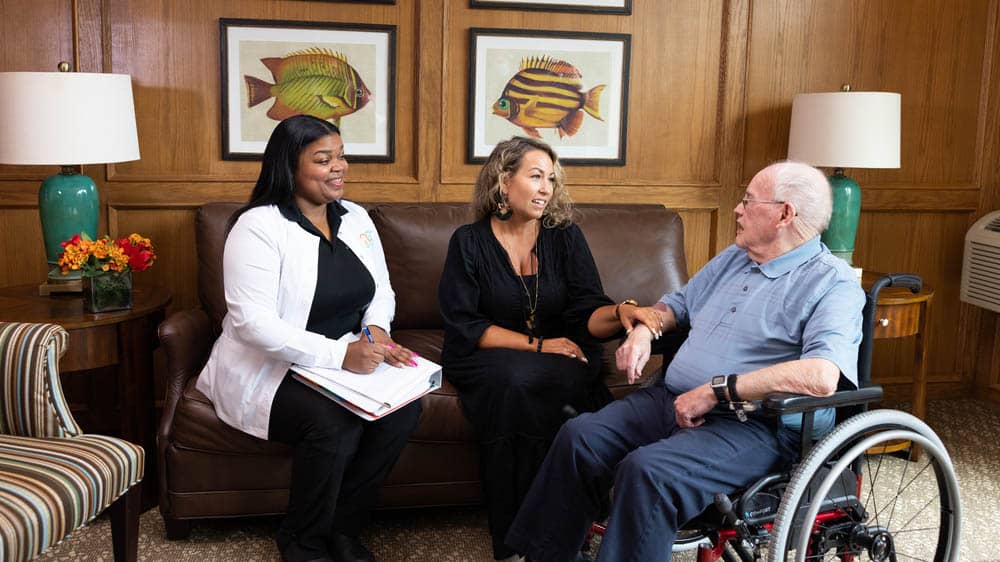

The Holiday Season: End Social Isolation Among Seniors
When you’re in your 20s, living alone is often a fun, independent adventure, but when you live alone as a senior, life takes on different challenges.
A May 2018 Forbes article highlighting the government report, “2017 Profile of Older Americans,” finds that 50 million Americans are age 65 or above. Of these older adults, about 14 percent of them live alone, and twice as many women as men in this age range live by themselves. Of American women over age 75, nearly half of them live alone. The year-end holiday season is often dreaded by many of these solo seniors who are just not up for the upbeat socializing and yuletide festivities.
Common Causes of Social Isolation for Seniors
Of the millions of older Americans who live alone, a number of factors keep them cocooned during the celebrations that take place annually from Thanksgiving Day through New Year’s Day. The shy-away-from-others mentality may be attributed to a number of common reasons for social withdrawal, including:
- Declining physical health. Older adults face an increased amount of physical limitations, chronic illness and chronic pain. Arthritis, diabetes and heart disease are some of the disorders that can leave seniors with limited mobility and limited desire to leave their home and be with others. Certain medications can also cause feelings of low mood and energy and a disinterest in socializing.
- Waning emotional well-being. A U.S. National Library of Medicine report finds, “Many people experience loneliness and depression in old age, either as a result of living alone or due to lack of close family ties and reduced connections with their culture of origin…” In seniors, depression and feelings of apathy and loneliness often go undiagnosed or misdiagnosed because physical aliments often overshadow emotional health.
- The loss of loved ones. The older one gets, the more people they will have lost in their lives: parents, spouses, siblings, friends, neighbors and co-workers. Many seniors also grieve deeply over their own children and grandchildren dying first. The death of a pet also takes a toll on an elder’s emotions.
- Changes in residence and lifestyle. Social disengagement is also common when an older adult transitions from a lifelong career to retirement and moves to a different home or an unfamiliar neighborhood. Living on limited finances can also squelch the desire to get out and enjoy activities with family and friends.
The Impact of Social Isolation on Seniors
According to research by the University College London, living alone and curtailing regular contact with people leads to increased health problems and can shorten one’s life. An eight-year study of 6,500 Britons over age 52 reveals that the most socially isolated participants were 26 percent more likely to die during the study years than group members who were active socially.
Researchers at Brigham Young University analyzed data from several health studies surveying more than 3 million people to find that “loneliness and social isolation are just as much a threat to longevity as obesity.” Previous research from the study’s co-authors noted that the increased risk of mortality from loneliness is comparable to smoking 15 cigarettes daily and being an alcoholic.
When aging adults pull away from social engagement—withdrawing from holiday gatherings and everyday activities in the community—doing so adds to the likelihood of poor health and dying sooner.
Resources to Help Seniors Stay Engaged
When elders participate in hobbies, clubs and other meaningful activities in the community, they boost their overall health. The following are ways to help older adults regularly engage and connect with others:
- Community groups and service organizations: Every community, whether it’s a small hamlet or bustling metro area, has civic, service or religious organizations that seniors can support. Older adults can lend their years of wisdom and life experience to serve on boards and committees and help plan local events.
- Volunteer opportunities: The holidays are an ideal time to give back to others. Zoos, museums and libraries need docents and guides to chaperone school groups and interested year-end donors. Year-round, older Americans can volunteer with many organizations, relief groups and after-school programs that need the skills, know-how and mentorship seniors can provide.
- Classes and clubs for fun and knowledge: Yoga anyone? Book club? Walking group? Want to lend a green thumb to a garden society? In-person meetings and virtual clubs on the internet are rewarding ways to interact with like-minded folks who share a similar cause or interest or who want to stretch their acumen with new skills or awareness.
- Social network technology to stay connected: Learning basic computer, cellphone and online skills empowers seniors to remain in touch with loved ones via text, emails and social media. Seeing the grandkids face to face via video calls warms the heart and staves off feeling too old or too out of touch with the younger generations.







